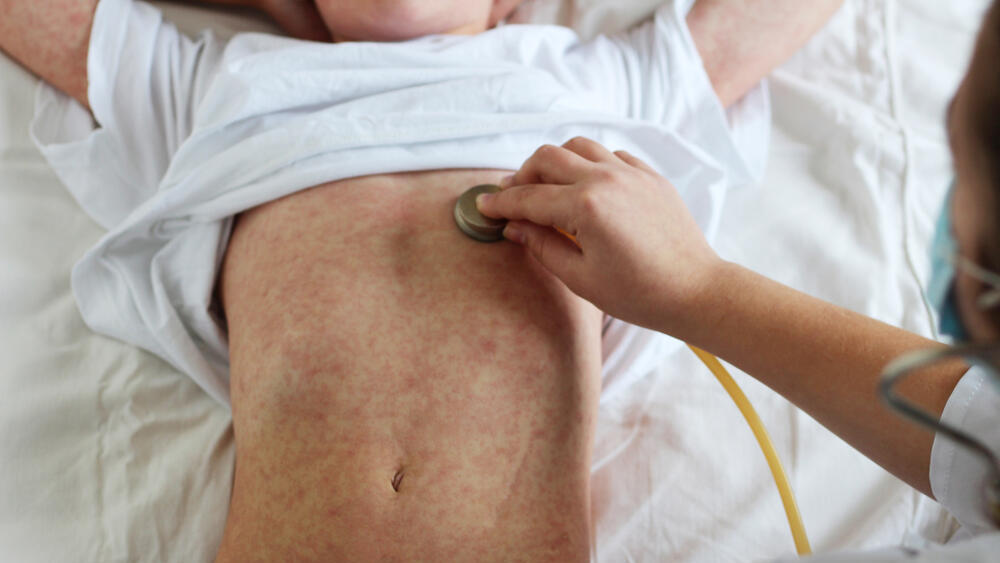The Health Ministry reported Tuesday of four cases of measles diagnosed in recent days. Since December, 18 cases of measles have been diagnosed, with most of them not fully vaccinated against measles.
Read more:
The ministry emphasized a recommendation for travelers abroad to ensure they are vaccinated with two doses. Michael Yagudaev, responsible for the infection prevention unit in central Israel, explains why measles is dangerous and what needs to be done to protect ourselves.
What is measles?
"It's a viral disease commonly known as a childhood illness, but adults can also get it. The disease is highly contagious, transmitted through tiny droplets in the air. One person can infect about 8-12 others."
What are the symptoms of the disease?
"The manifestation of measles is a fever above 38, cough, runny nose, and a rash starting from the face and moving downwards. Additional symptoms may include bilateral ear inflammation. Another characteristic sign of the disease is Koplik's spots (spots appearing on the palate).
"It's important to note that the incubation period of the disease can be up to 21 days, meaning symptoms can appear up to three weeks after exposure. The patient becomes contagious four days before the rash appears or four days after the rash appears. Therefore, there's importance in conducting rapid and effective epidemiological investigations to identify contacts exposed to the same patient due to the narrow therapeutic window in which preventive treatment can be given to prevent the disease."
What are the complications of measles?
"The disease can weaken the immune system. There are reports in medical literature that measles can cause a decline in the immune system, making individuals susceptible to many infections and at risk of complications such as pneumonia, encephalitis, and a complication of bilateral ear inflammation. In certain cases, children who have had measles can develop SSPE, a subacute sclerosing panencephalitis, up to 6-8 years after the onset of the disease, leading to brain damage, cognitive impairment, blindness, seizures, walking difficulties, and even death. Hence, the importance of vaccination against the disease."
 Michael Yagudaev
Michael YagudaevWho is at risk?
"Anyone who is not vaccinated can contract the disease. These individuals may infect others who are not vaccinated. The risk of complications is higher in children under five, individuals with suppressed immune systems, pregnant women (both mother and fetus are at risk), and adults over 20."
Is there treatment or prevention for measles?
"It is highly recommended to vaccinate all children with the measles vaccine as part of routine vaccination at the age of one, the first dose, and at first grade (age 6), the second dose. The vaccine contains four components: measles, mumps, rubella, and varicella. The first dose is given as part of the family health station/milk drop at the age of one, and the second dose is given in first grade by student health services.
"The vaccine is also available for adults under the following conditions: individuals born in 1957 and later who have not been vaccinated with two doses against measles are entitled to two doses, and those born in 1957 who have been vaccinated with one dose will be eligible to receive one dose. Women of childbearing age who do not have documentation of receiving two doses of varicella vaccine and are not pregnant are also eligible."




